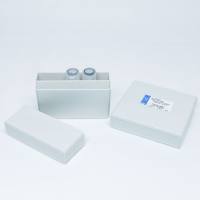Rodent Models to Evaluate Anti-obesity Drugs
互联网
608
This article describes the use of rodent models to evaluate the anti-obesity potential of novel drugs. Although drugs can reduce body weight by altering energy input or energy output, we have focused on the discovery of compounds reducing food intake as this is the most common pharmacological approach for anti-obesity drugs. Methods are described for assessing and interpreting the specificity of the effects of acute and chronic administration of novel compounds on food intake, water intake, and body weight in mice and rats including animal models of overweight and obesity. Genetically obese mice and rats with spontaneously occurring single gene mutations in genes encoding leptin or its receptors have been characterized. However, monogenic obesity in humans is extremely rare and it is now widely accepted that polygenic dietary-induced obese rats and mice are the most appropriate models for predicting the therapeutic potential of novel drugs in common human obesity.







